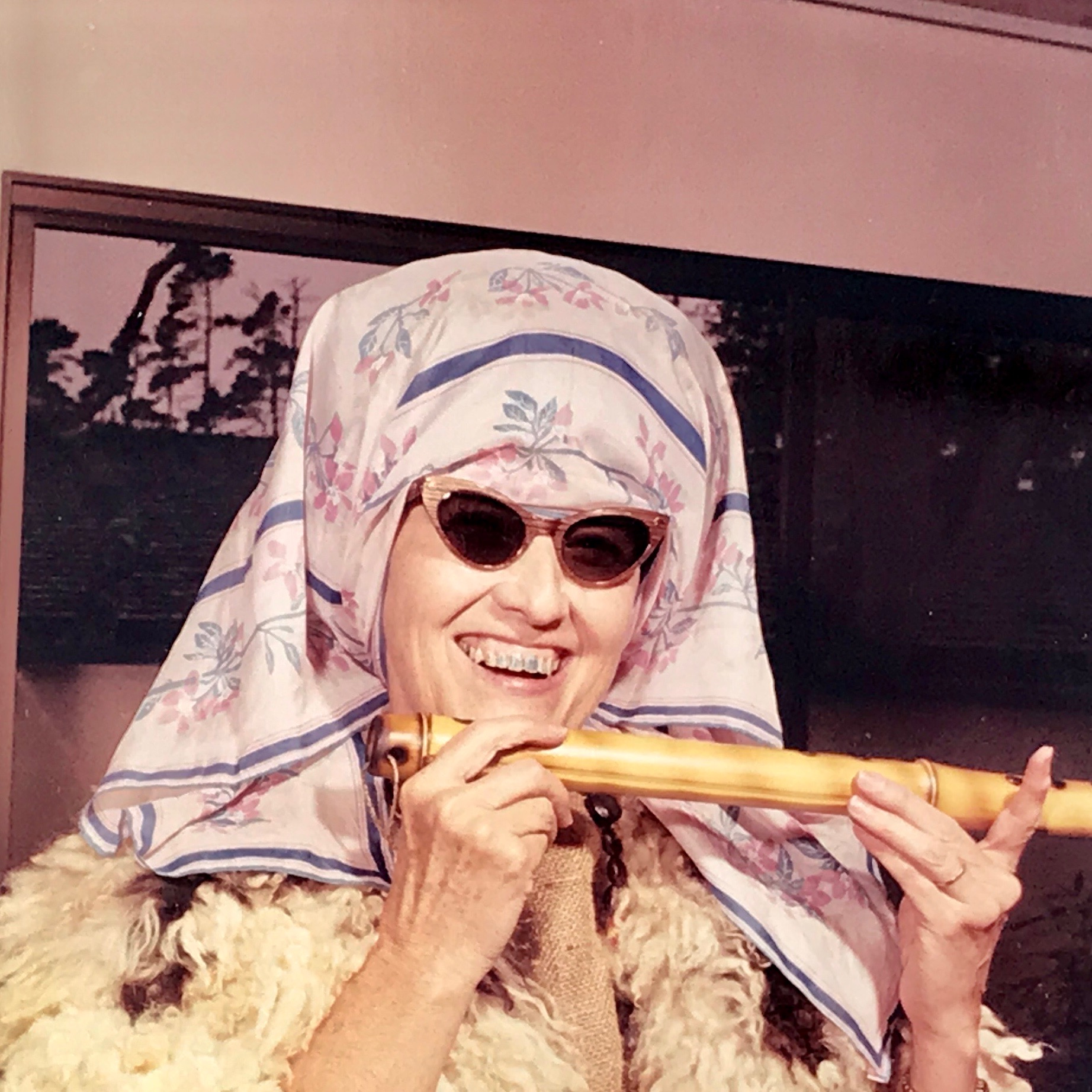She always signs her emails with, “Love and Light, Geraldine.” Love and light is exactly what this dynamic Australian woman has freely given over the years to 100s of Cambodian orphans.
(Yes Geraldine purposely dyes her hair this color—a story you should ask me about in person)
At the age of 25, Geraldine Cox began her career in 1970 working for The Department of Foreign Affairs. Her first overseas posting was in 1971, landing her in Phnom Penh, Cambodia. With the Vietnam War pounding at the border, the country was in turmoil. Geraldine refers to this two-year assignment as an experience that significantly shaped who she is today.
Geraldine's early experiences in Cambodia never left her and while living in Australia in 1993, she helped establish the Australia Cambodia Foundation, which paved the way to set up an orphanage known today as Sunrise Cambodia. Geraldine became a permanent resident of Cambodia in 1995, and at the age of 72, she is still there activating miracles for many orphaned children and the surrounding communities. The children adore Geraldine and lovingly refer to her as "Mum Thom-Thom," which translates to “Big Mum.” I first met this mother to many in 1999.
In August of 1997, I had moved with my family from Oregon, USA to Singapore. I fast became friends with Leearne, a woman originally from Australia. By the spring of 1998, she and her husband were pursuing an adoption of a baby girl in Cambodia. Leearne and I traveled to Cambodia in June of the same year with the hope of moving her adoption proceedings forward. While spending time in the orphanage, we discovered how easy it was to make a difference in the lives of suffering children. After returning to Singapore, we formed a service group called, “The Friends of Cambodia.” With the generous support of friends and family, our organization helped facilitate medical testing and sponsorships for orphans, adoptions, medical missions, several shipments of cargo containers full of donated supplies, the hiring of English teachers, and the expansion of a computer school.
Whenever a member of the Friends of Cambodia made a trip to Phnom Penh, I recruited them to take donations of cash and supplies to the various orphanages we helped support—Sunrise Cambodia being one of the recipients. Much of what we sent was clothing. It is not usual to see young children (mostly boys) in the city and villages ‘wearing’ only their own skin as a covering. The young girls usually wore a skirt or shorts—that’s it. But children in the orphanages run by people like Geraldine, were supplied full outfits, including underwear.
Beyond clothing, there was much need for hygiene items. Many of our husbands had jobs that required frequent international travel—giving them the added benefit of flying business class. Consequently, our families accumulated a hefty supply of the complementary airline toiletry bags the men would bring home. The zip-up canvas bags contained a toothbrush, toothpaste, lotion or cologne, a comb, socks, earplugs, and a sleep mask. Because we had to comply with weight limitations, I tried to ensure only essential items be included in our care packages. So when requesting donations of unused airline toiletry bags, I instructed the women in our group to remove the ear plugs and sleep masks and replace them with soaps and shampoos. You can imagine my confusion, followed by tearful laughter when I read the following email sent by Geraldine after receiving supplies designated for her orphanage.
June 24,1999
Dear Melanie,
I have so much to thank you for I don't know where to begin!
The hygiene packs were a HUGE success. I had no idea what they contained and they were full of goodies like shampoos, skin creams, conditioners, toothpaste/toothbrushes, airline socks and eye masks. You would have gotten a real giggle out of watching the older girls trying to fit the eye masks as bras on the little girls! They had never seen eye masks before!
Love and Light,
Geraldine
Although organizing humanitarian work was challenging, exhausting, and heartwrenching on most days, there were many moments—like the invention of the sleep mask bra—that delivered much love, light, AND laughter to our cause.
To learn more about Sunrise Cambodia, go here http://sunrisecambodia.org.au
(Note: To learn more about the experiences I had in Cambodia see chapter 28, “The Scent of Gratitude,” in my book titled Sacred Soul-Space: Making Room in Your Life for What You Have to Offer This World.)


















